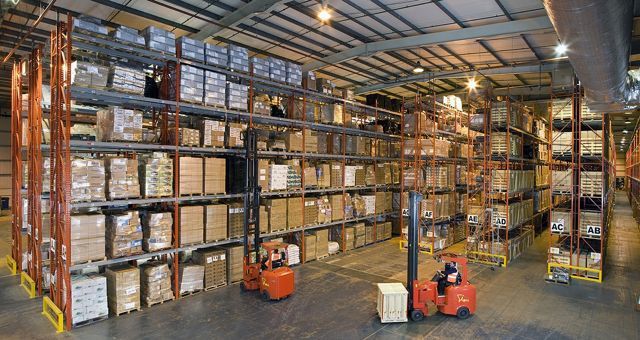 ArcelorMittal trialed Flexi articulated forklifts for a year before switching one of its fleets to Flexis. |
The world's largest steel-producing company has boosted efficiency at one of its key European plants with the acquisition of articulated forklifts.
ArcelorMittal trialed Flexi articulated forklifts for a year at its facility near Liege before switching its fleet to Flexis.
The trucks have replaced electric sideloaders and are used to transport finished components destined for the automotive sector between ArcelorMittal's production line and the company's on-site storage facility. They lift loads up to 2 T to heights over 8 m (26 ft.) at ArcelorMittal.
Sideloaders were historically used at the site because the loads measure up to 2 m wide. However, the machines were considered slow and their lack of manoeuvrability and poor operator visibility resulted in high levels of damage to loads and warehouse racking.
The variation in the dimensions of the loads carried at ArcelorMittal made pallet visibility an especially important consideration when specifying the new trucks. At lower stacking heights, the sideloaders previously employed offered a restricted view for the operator. However, thanks to the design of the Flexi's 'HiVis' overhead guard, the operator has a clear view of the load at all levels.
"With any materials handling operation, the amount of time spent in the aisleway picking and putting away loads has to be minimised if optimum operational efficiencies are to be achieved," says John Maguire, Flexi Narrow Aisle's sales and marketing director.
ArcelorMittal's truck drivers underwent an on-site conversion training course to ensure they were familiar and comfortable with the Flexi truck's operation. The company has reported a drop in handling damage and higher throughput rates since switching to Flexis.
"Flexi articulated trucks are perhaps bestn know for their space-saving characteristics, but for applications where awkwardly-shaped loads are handled, their manoeuvrability within the aisle can result in significant throughput speed gains, as ArcelorMittal have found," Maguire says.